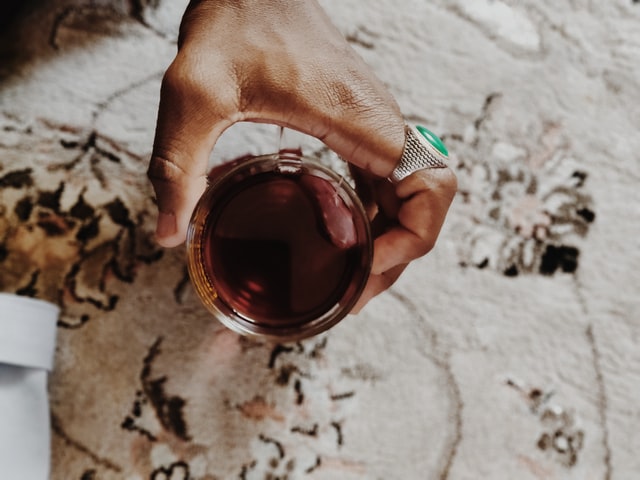Am I pregnant? 10 early signs that you might be expecting a baby

Could you be pregnant? Long before your baby bump starts to show, your body may tell you in other ways that you are expecting. Here are some of the earliest signs to look out for, say doctors.
This is one of the first signs that might lead you to believe you are pregnant. If your cycle is regular, you might not get your period on the day you expect it, says Dr Ann Tan, an obstetrician and gynaecologist at Women Fertility & Fetal Centre at Mount Elizabeth Medical Centre.
"If you have a regular 28-day cycle, a missed cycle means that by Day 28 or 29, a urine test can be done to determine if you are pregnant. But most of our periods rarely arrive on the exact day that we expect them to, anyway, so it is important to remember that your cycle may vary by a few days either way."
Early pregnancy bleeding may occur just before your expected period or at the time of your period, but it will not be a normal menstrual bleed.
Instead, it will be a lighter pink-red or red-brown flow, says Dr Tan. This may be implantation bleeding, which is a very early sign of pregnancy, occurring about a couple of weeks after conception. See your doctor if you are not sure what the bleeding is due to.

The nausea and vomiting associated with this condition may be called morning sickness, but the discomfort can last all day in some cases.
This is due to normal hormonal changes, says Dr Christopher Ng, an obstetrician and gynaecologist at GynaeMD Women's & Rejuvenation Clinic at Camden Medical Centre.
While morning sickness usually occurs in the first trimester and improves as the pregnancy progresses, some women may experience it throughout their pregnancy or only after the first trimester.
"Eating more frequently may help, as will cooking with ginger or drinking ginger tea, because ginger is known to have anti-nausea and anti-vomiting properties," says Dr Ng.
"Avoid fatty foods that can make you queasy and any smells that make you nauseous, and remember to drink lots of water to stay hydrated and replenish lost fluids."
"You may feel dizzy as a result of changes in your blood circulation, which are normal as your body adjusts to the hormonal changes that begin to take place after you fall pregnant," Dr Ng explains. "You can prevent or minimise dizziness by not standing for too long and getting up slowly after lying down or sitting."
Dr Ng says that hormonal changes may make your breasts more sensitive. You may feel more comfortable if you wear bras that are the right size and offer better support.

"You may start to feel increasingly tired - this is because your heart has to beat much harder," says Dr Ng. Still, you should not neglect your fitness during this time so remember to do light exercises regularly.
Dr Ng says it is important to take your pregnancy vitamins and supplements as well, and to eat a healthy, well-balanced diet to help restore your energy levels.
Early pregnancy hormones may cause your oesophageal muscles to push food more slowly into your stomach.
This means your stomach may take longer to empty, resulting in heartburn or acid reflux - a burning pain or discomfort in the upper or middle part of the chest that occurs right after eating.
"Try eating more frequent meals but avoid spicy food, carbonated drinks, citrus juices and fruit until the discomfort improves," Dr Ng advises.

Early pregnancy hormones also tend to slow the movement of food through your intestines. As a result, Dr Tan says that you might feel constipated.
The abdominal discomfort may be from the constipation and trapped air in your gut. To relieve that backed-up feeling, she advises you to increase your fluid intake or use mild laxatives if really needed.
Dr Ng also suggests consuming more dietary fibre to help with constipation. Good sources of dietary fibre include whole grains like rolled oats and rye bread, wheat bran, vegetables, and beans, legumes and pulses.
As your pregnancy progresses your uterus enlarges, pressing onto your bladder and giving you the sensation of needing to urinate more often than usual. You may even experience urinary incontinence on occasion, especially when sneezing, coughing or laughing.
Dr Ng advises you not to hold your urine in if you feel the urge to go, because this may increase your risk of urinary tract infections.
"Also, try not to drink too much fluid before bedtime, otherwise you will be waking up in the middle of the night to pee, and avoid diuretics like caffeinated drinks, which may increase your desire to urinate," he adds. Incontinence pads are useful to help prevent embarrassing accidents.

Dr Ng says that you might feel more emotional than usual or experience mood swings as your body goes through the various hormonal changes.
It helps to have an understanding spouse and a good support network to help you cope with the fluctuating emotions. If you feel overwhelmed, Dr Ng suggests turning to your gynaecologist for help.
This article was first published in Young Parents.